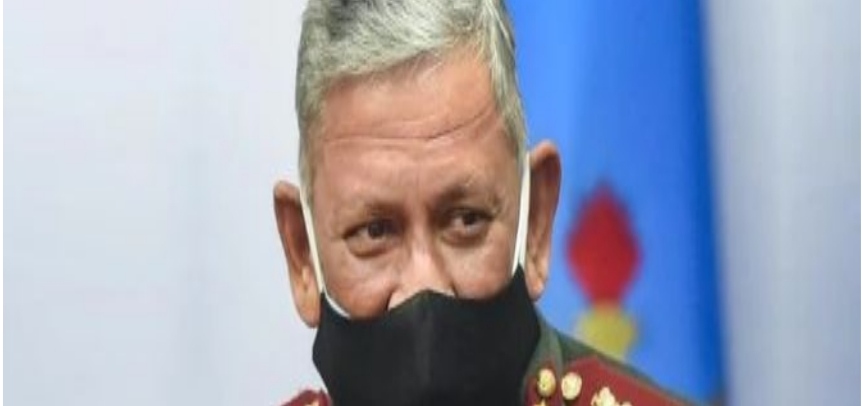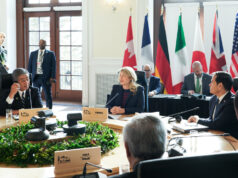Theaterisation Should take place with one step at a time
By
Colonel Awadhesh Kumar, Special Forces

CDS General Bipin Rawat. The operational control of all the theatre commands will eventually come under CDS
The government gave a mandate to General Bipin Rawat, who took charge as India’s first chief of defence staff (CDS) on January 1, 2020, to bring about jointness among the three services in a three-year time frame by January 2023.
The final jointness will be achieved when we have integrated theatre commands for Warfare providing the best use of military resources to fight future battles. However there is bound to be many hiccups before reaching the goal.
We already have a geographical integrated Command in the form of Andaman & Nicobar Command and a functional command in the form of Strategic Forces Command.
Next step should be to create the Space & Cyber Command ( later with further growth they can get bifurcated into separate Commands if required ). In a few years time even the Tri Services Special Forces may be upgraded to full fledged functional Command. Then there is the question of raising an integrated Logistic Command. Here apart from the Tri Services the integration must cover the synergy with the Civil side too both Government and Private Sector.
While the above are going on, other low hanging fruits like Joint Helicopter Training School, Joint UAV School, Joint Amphibious Warfare School must be set up instead of doing these things at individual Services level.
All the integrated Commands and joint Schools will be reporting to HQ IDS. Therefore For proper Command control and many other things, there has to be a four star Vice Chief of Defence Staff, at par with the three Services Chiefs. He will be the head of the HQ IDS and reporting to the Chairman Chief of Staff Committee.
Then we come to the Theaterisation of the bulk of the Combat Forces of the three Services. This refers to placing specific units of the army, the navy and the air force under a Geographic theatre commander. Such Theatres will be be led by an officer from any of the three services. His selection will be based on laid down suitability criteria which will include time in various integrated / joint establishments.
The government has constituted an expert panel for consultations on the military’s Theaterisation plans before seeking the approval of the Cabinet Committee on Security (CCS) to implement the long-awaited military reform to optimally utilise the resources of the armed forces, officials aware of the matter said on Friday.
“A committee has been formed to look into different aspects of Theaterisation. It has members of the armed forces, defence ministry and other ministries involved in the planning and implementation aspects,” said one of the officials cited above.
Issues related to Theaterisation were discussed and examined in detail by top officials who reviewed a draft cabinet note on new joint structures at a meeting this month, as reported by HT on Thursday.
The key points discussed included the executing authority for theatre commands, the geographies they will control, command and control structures, budgeting and placing some paramilitary forces under the commands. Some of these issues involve the finance and home ministries.
As per a report in February that India was set to begin a formal roll-out of its long-awaited Theaterisation plan, with the Air Defence Command and the Maritime Theatre. The proposed details indicated a sort of haste to just do it and be with it. Various implications it seemed were just going to be overlooked or swept under the carpet.
Deliberations on the proposal are surely going to take more time as all stakeholders must be brought on board willingly or even cajoled a bit if required, with enough built in checks and balances. This will require that the previous timelines for implementations get revised.
The proposed Maritime Theatre looks too unwieldy with inbuilt organizational fault lines and inherent functional contradictions. The very geographical Size, the shape of the Indian Peninsula and envisaged role dictates that we have two such Maritime Theatres. Two Theatres will not only be much more manageable and effective but also cause the least hiccups in integrating our existing set ups.
The first theatre to come up should be the Penninsular Martime Theatre comprising the Southern Naval Command ( including Karnatka ), Eastern Naval Command ( excluding Orissa and West Bengal ), Andaman & Nicobar Command, Southern Air Command and ATTKK Area of the Army. Here the Theatre Commander may be from the Navy or the Air Force.
The next theatre to come up should be the Arabian Theatre comprising the Western Naval Command, South Western Air Command, Southern Army Command ( excluding ATTKK Area ) and South Western Army Command.Here the Theatre Commander may be from either the the Air Force or the Navy.
Subsequently we can have the North Western Theatre and the Eastern Theatre. The Central Theatre may come up if required comprising the Central Army Command, the Central Air Command including any GHQ reserve Forces.
Experts said building consensus among all stakeholders was crucial to take the Theaterisation plan forward. The operational control of all the theatre commands will eventually come under CDS, with the service chiefs which will include VCDS being responsible for raising, training and sustaining their forces.
The present CDS wears three main hats. He is the permanent chairman of the chiefs of staff committee (COSC), heads the department of military affairs (DMA), and is the single-point military adviser to the Cabinet Committee Security. He is also the defence advisor to the PM, to the Raksha Mantri and the Nuclear Command Authority.
CDS will have operational control over all the integrated Theatres when they are fully functional. This will become his full time role as CDS. Then a restructuring could involve by making the CISC as a secretary In the DMA to take off most of the administrative burden in due course to allow CDS to focus on the theatres and the advisory roles.




